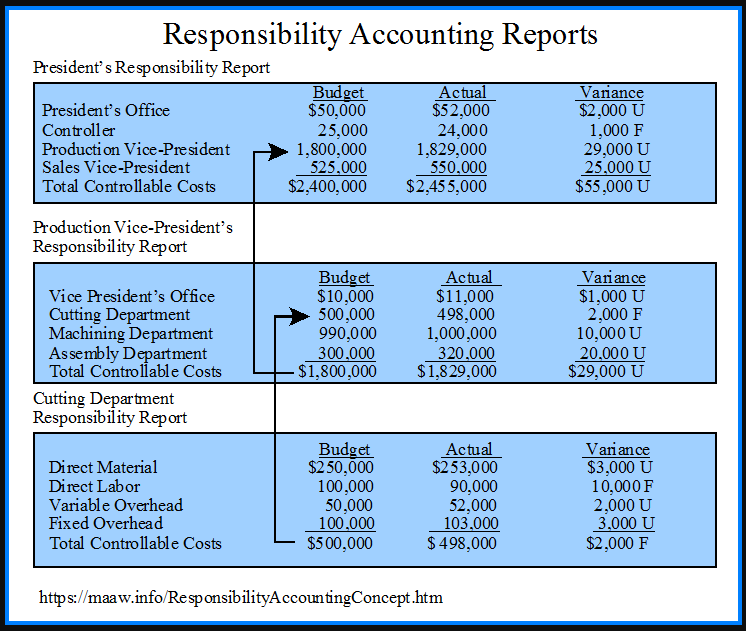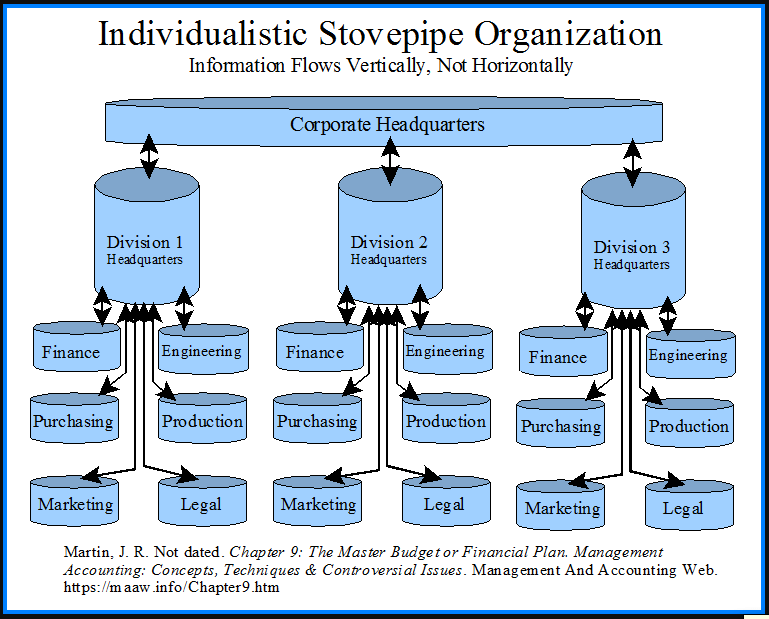When it comes to company budgeting and accounting, responsibility accounting is something that should not be missed. The identification system usually involves gathering and reporting of revenues and expenditures by certain areas of responsibility. This kind of accounting comes with some essential features as well as advantages.
The objective of this system is to help with the planning and control of responsibility centers of the company. A sound accounting system also reflects the health of company management. Get to know more about accounting of responsibility including the definition, features, and advantages below.
Responsibility Accounting Definitions
According to the definition, accounting of responsibility is a system which involves internal accounting and budgeting for responsibility center in a company. It can also be defined as a system control in which responsibility is assigned to control the costs.
Some experts also have different definitions to this term. Below are several definitions according to the experts:
Kohler E.L.
According to Kohler, accounting of responsibility is the classification, maintenance, management of accounts to provide information on the standard of performance, quality, and quantity carried out by authorized person.
David Fanning
Fanning uttered that it is a system to control the wider freedom of action that decision center manages. In other words, accounting of responsibility serves as a controlling device to control the performance of executives. It also focuses mainly on responsibility centers.
See Also : Is Accounting a Good Major? Reasons Revealed!
Charles T. Horngren
Horngren defines accounting responsibility as a system of accounting which recognizes a variety of decision centers in an organization. It also traces costs to the managers who are responsible in making decision about the costs.
Anthony and Reece
Accounting of responsibility is a type of management accounting that gathers and reports actual accounting information. It emphasizes on the setting of responsibility centers’ responsibility and recording the actual performance.
Accounting Definition from Wikipedia.org
Responsibility Accounting Features

Accounting of responsibility consists of several fundamental aspects or features. The aspects must present in each accounting of responsibility. Based on the definitions above, some features in the accounting system include:
Costs and revenues
Inputs and outputs or also called costs and revenues are essential aspects in accounting. The implementation of accounting system is based on inputs and outputs in question.
Inputs in monetary terms are called costs while outputs in monetary terms are known as revenues. The accounting is based on these two aspects.
Budgeting
Financial information, both planned and actual information is needed to realize an effective accounting system. The budgets are communicated to each management level.
In this term, the use of budgeting means all budget information is incorporated, be it fixed budget, flexible budget, or profit planning.
Responsibility center identification
Accounting of responsibility focuses on the identification of responsibility centers. It is a part of a company where the manager has certain authority and responsibility.
In a small company, small group of individuals or even an individual play as a responsibility center. However, segmentation is needed for an effective control.
See Also : Accounting Job Description, Salary, and Requirement
Responsibility center can be classified to cost center, revenue center, profit center, and investment center. Each subunit comes with distinct area of control.
For instance, cost center controls cost while revenue center controls over revenue only. Profit center takes control over revenues and costs and investment center has control over costs, revenues, and investments.
Performance reporting
The accounting system focuses on performance report which is known as responsibility report. It is typically prepared for every responsibility unit.
The report that goes from bottom to top should be addressed to the right persons in responsibility centers. It should contain information, commonly in a comparative form, about budget and actual performance.
Participative management
An effective accounting system could only be realized by participative management. When the democratic style is followed, the function of accounting system can be more effective.
Accounting of Responsibility Advantages

Performing accounting system brings some advantages, particularly to the company’s finance. Not only does it keep track on the revenues and costs, the system also helps the company to take decision for the future. The followings are advantages of performing accounting of responsibility to the firms.
Delegates decision making
The accounting system delegates decision making. Department heads, managers, and supervisors are assigned to make operational decisions. This allows the executives or top management to focus on long term objectives or strategy.
Guides performance evaluation
Accounting of responsibility brings advantage to provide performance evaluation guide. This guide helps to establish standards to compare with the actual results.
Promotes management by objectives and by exception
This accounting system also promotes management by objectives and management by exception. Management by objectives can be defined as an approach where a manager agrees on certain objectives or foals.
Manager performance and his subordinates are then evaluated according to what extend the goals can be achieved.
See Also : UF Accounting Major: Why You Should Join
Management by exception is a managerial approach where the management pays attention to things which materially deviate from the standards.
For instance, when a division comes with a significantly higher costs compared to the planned budget, the management will focus on figuring out the reason as well as fixing the problem by way of cutting costs or establishing new standards.
That becomes a question, how to achieve an effective accounting of responsibility? To create an effective implementation, some requisites must be met.
They include a sound organizational structure and clearly established performance evaluation standards and measure. In addition, the performance evaluation reports must only include items which are under the influence of responsibility center manager.
When the requisites can be made, a firm will have an effective accounting system. At the very end, it brings a lot of benefits to the company particularly to budgeting. On the contrary, ineffective accounting system may cause problematic budgeting to the company.
It can be concluded that accounting of responsibility plays a major role in a company management particularly budgeting.
Covering several features, this accounting system helps to establish sound management in which the costs and revenues are balance, or the costs are not higher than what was budgeted. It also assists the company to set goals or long tem organizational objectives.



